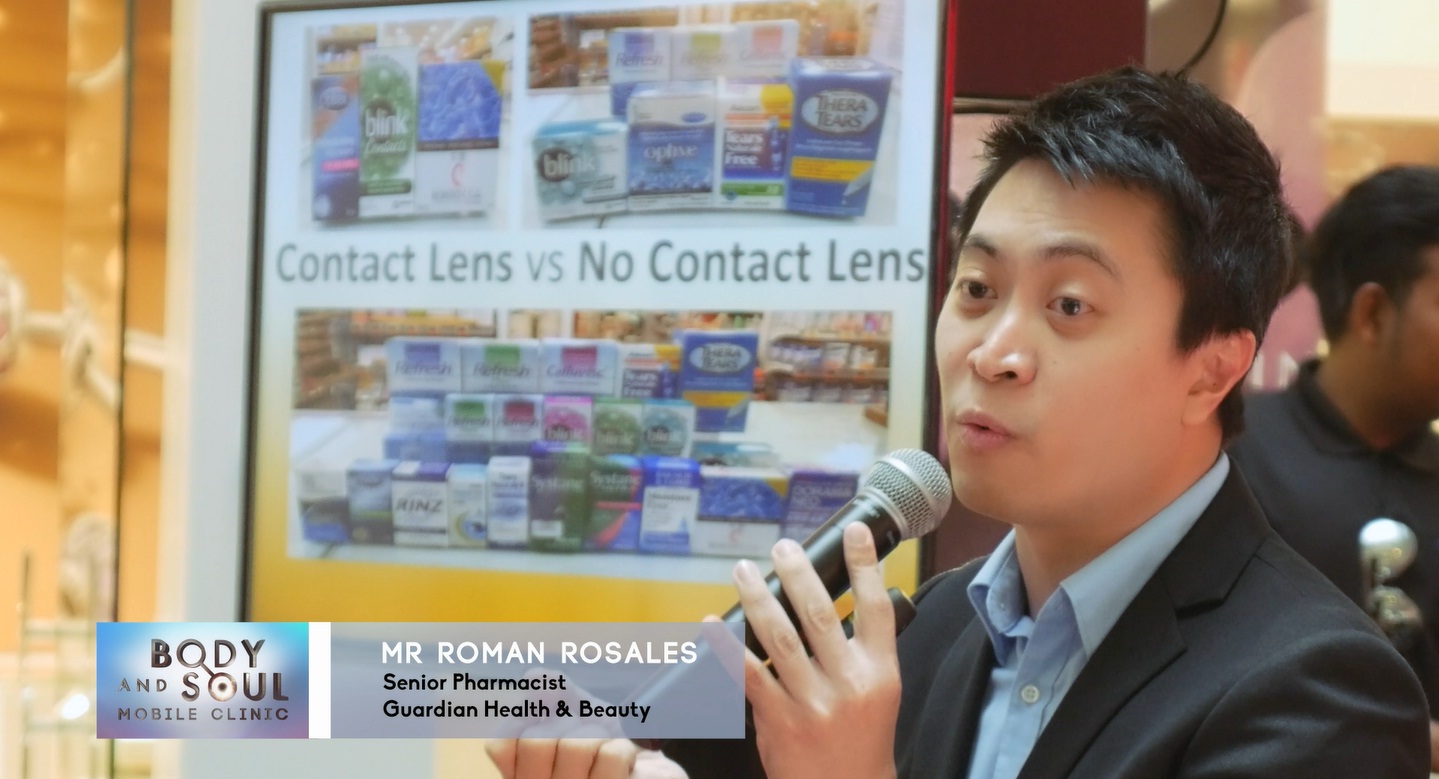You are here
PSS Shining Star is a PSS initiative that features individuals who embody the exceptional qualities of a community pharmacist.

Roman Lester Rosales
A. Interview Questions
- Why did you choose pharmacy as your profession?
Growing up, I have always wanted to pursue a career in healthcare. Every time I accompanied my mother to the pharmacy, I was always fascinated by how the pharmacists seem to always know what she was looking for or what she needed. Eventually, I chose pharmacy as my profession as I learned more about the various roles a pharmacist can play in different settings (e.g. community, hospital, industry) and still have an impact on healthcare.
- Why did you choose to be a community pharmacist?
Community pharmacists are one of the most accessible healthcare professionals. We are at the forefront of providing care for patients with minor ailments and providing professional advice on the management of chronic medical conditions and overall health management. After my attachments when I was still an undergraduate, I found that the dynamic nature of the community setting is more suitable for my personality. I liked the interactions I had with customers and patients and also the operational component of running a retail business and thus, I chose to work in the community.
- What helped/motivated you to be where you are today?
I believe my main motivation is my desire to provide assistance in any way that I can, to the best of my abilities. Encouragement and guidance from my superiors and support from my colleagues definitely helped me in achieving my goals and objectives. Lastly, it is when customers and patients come back and tell me how I managed to help them and are very appreciative of it, do I feel that I have done what I have set out to do.
- Who would you say is your role model, who inspired you to excel in the pharmacy field that you choose?
I do not have a specific role model but it is heartening to see numerous pharmacists who excel in their line of work and at the same time, remain active in promoting and upholding the values of our profession through the activities of the Pharmaceutical Society of Singapore (PSS).
- What is your advice for your fellow pharmacists and for people who are considering this career?
As a profession, we can definitely work together towards achieving optimal outcomes for our patients/customers no matter which industry we are in. Pharmacy practice has evolved and is expected to change further and thus, we need to keep abreast with and adapt to all these changes. Let us be proud of what we have done so far and look forward to what we can do further in the future.
- Given that Singapore will be experiencing one in three citizens aged 65 and above by 2030, how do you think pharmacists can contribute to the healthcare of this group of people?
As community pharmacists are very accessible, we are very well placed to contribute greatly to the healthcare of the ageing population. One way is through preventive healthcare by providing health advice, information on early detection and prevention of chronic illnesses and health screening efforts. Another way is through the management of chronic medical conditions by providing medication review and programmes for the management of their medical conditions. As the 'medication expert', our role will continue to be that of the 'go-to' healthcare professional when it comes to medication advice, management of polypharmacy and optimising drug therapies .
- What is the most memorable moment in your pharmacy career?
One of my most memorable moments in my pharmacy career, so far, has to be when I was invited to give a talk at a public event held in a mall atrium. It was memorable firstly because it was the first time I gave a talk in such a setting and also because I managed to work with other healthcare professionals (a doctor and an optometrist) for the event. It was also memorable because it shows that pharmacists need not be confined to the space of the pharmacy to be able to provide our services, but also share our knowledge as the experts in medication and minor ailments through such events for public education.
- Describe your career progression path.
I joined Guardian Health and Beauty as a pre-registration pharmacist after graduating from the National University of Singapore in 2011. I became the resident pharmacist at Guardian Raffles City and was subsequently promoted to Senior Pharmacist in 2015. Throughout my years of service at Guardian, I have taken up numerous portfolios including heading the Telepharmacy Team and the Pharmacy Technician Team. I have also been involved in PSS workgroups and chapters and I am currently the chairperson of the PSS Public Education Chapter.
- Can you describe a typical day at work?
A typical day at work starts with dispensary duties which include serving customers/patients, dispensing medicines for the management of chronic conditions and giving advice and recommending treatments for minor ailments and/or overall health management. Operational duties (e.g. ordering, receiving delivery items, management of stocks) are part and parcel of the daily pharmacy operations too. During lull periods, I actively help out with our Telepharmacy service and finish up work for my other portfolios as well (e.g. write up articles, prepare Pharmacy Technician trainings, etc.).
- What do you think are the important skills that a pharmacist needs to be equipped with?
I believe that aside from good clinical knowledge, a pharmacist must be able to think on his feet, be observant and be able to learn good problem solving skills. In order to provide good patient care, pharmacists should also possess effective communication skills, be empathetic and have the patience in dealing with different types of patients.
- What is your wish list to your patients/the public who comes to you?
I hope that more people will know and understand our role as pharmacists. By knowing what we can do, I believe that more people will think of us as the first person to seek advice from when it comes to their medicines and management of their conditions, be it minor ailments or chronic illnesses.




